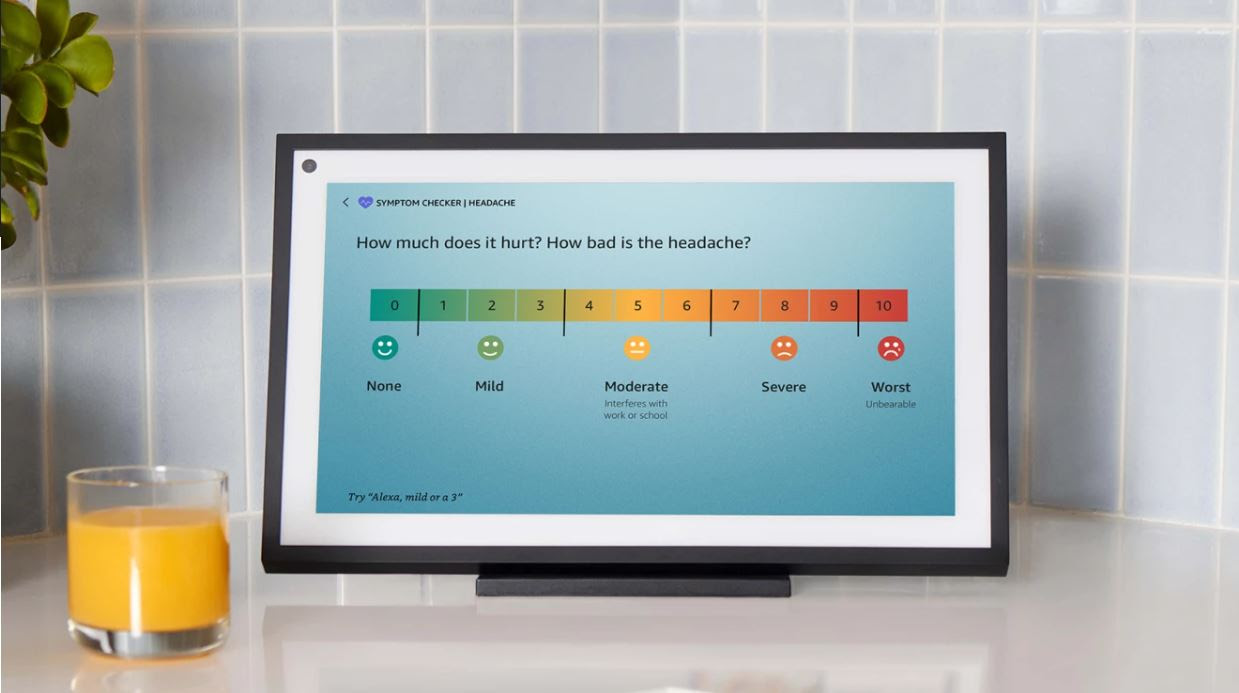'Alexa, check my symptoms' — Alexa just added a new symptom checker
Is Alexa the new WebMD?

Here at Tom’s Guide our expert editors are committed to bringing you the best news, reviews and guides to help you stay informed and ahead of the curve!
You are now subscribed
Your newsletter sign-up was successful
Want to add more newsletters?

Daily (Mon-Sun)
Tom's Guide Daily
Sign up to get the latest updates on all of your favorite content! From cutting-edge tech news and the hottest streaming buzz to unbeatable deals on the best products and in-depth reviews, we’ve got you covered.

Weekly on Thursday
Tom's AI Guide
Be AI savvy with your weekly newsletter summing up all the biggest AI news you need to know. Plus, analysis from our AI editor and tips on how to use the latest AI tools!

Weekly on Friday
Tom's iGuide
Unlock the vast world of Apple news straight to your inbox. With coverage on everything from exciting product launches to essential software updates, this is your go-to source for the latest updates on all the best Apple content.

Weekly on Monday
Tom's Streaming Guide
Our weekly newsletter is expertly crafted to immerse you in the world of streaming. Stay updated on the latest releases and our top recommendations across your favorite streaming platforms.
Join the club
Get full access to premium articles, exclusive features and a growing list of member rewards.
Alexa just got another update that, once again, is perhaps as creepy as it is helpful. The voice assistant can now offer basic health advice based on your symptoms, kind of like what you'd get out of WedMD.
And like searching the ever-daunting WebMD, this new feature appears to be a broader extension for all kinds of basic health conditions. If you want to know what your fever, rash, stomachache, runny nose, or headache mean, Alexa might be able to provide some information.
When you say, "Alexa, check my symptoms," the assistant replies, "I can help you understand what your symptoms mean by asking you a series of questions developed by medical experts at Amazon Care." Alexa then advises this skill isn't a substitute for professional medical care, and asks whether you want to continue.
Thus begins a game of 20 questions to develop your health profile and get a picture of what's bothering you. Alexa offers to define symptoms and can even identify when symptoms might be connected, or what might've caused them.
Currently, Alexa doesn't have the ability to call 911 for you in case of a true medical emergency (or any emergency, period.) One of the best Alexa skills, Ask My Buddy, alerts your emergency contacts when something might be wrong. But in the instances you're not sure whether you need to see a doctor urgently, using the symptom-checker skill could prove useful.
Alexa could already use prompts to screen you for Covid-19, so this new feature appears to be a broader extension for all kinds of basic health conditions. It also leverages Amazon Care, which is the company's on-demand telehealth platform that can connect users with clinicians.
I cannot emphasis this enough: you should not diagnose yourself based on what you hear from your voice assistant. But from a quick test of the skill, Alexa's symptom-checker doesn't come off as pessimistic or matter-of-fact as WebMD about understanding why you might be feeling a certain way.
Get instant access to breaking news, the hottest reviews, great deals and helpful tips.
Health data is highly sensitive, so privacy is an immediate concern when learning about this symptom-checking feature. First, the feature is optional. You also don't have to engage in any questions you don't feel comfortable answering. If you know how to use Alexa, you probably know you can tell Alexa to delete anything you've said at any time too.
I've done enough WebMD-ing in my day to know a headache is probably just dehydration and a runny nose is usually allergies. But it could be helpful in pinch to see whether the severity of my symptoms grows over the course of a few days, or if a weird rash I haven't seen before should send me to the dermatologist.
The Alexa symptom checker is available now on the best Alexa speakers, best smart displays with Alexa or the Alexa app on your smartphone. We made a guide on how to add the Alexa widget to your iPhone if you haven't already.

Kate Kozuch is the managing editor of social and video at Tom’s Guide. She writes about smartwatches, TVs, audio devices, and some cooking appliances, too. Kate appears on Fox News to talk tech trends and runs the Tom's Guide TikTok account, which you should be following if you don't already. When she’s not filming tech videos, you can find her taking up a new sport, mastering the NYT Crossword or channeling her inner celebrity chef.
 Club Benefits
Club Benefits





